Ashley Edwards
Genie: Generative Interactive Environments
Feb 23, 2024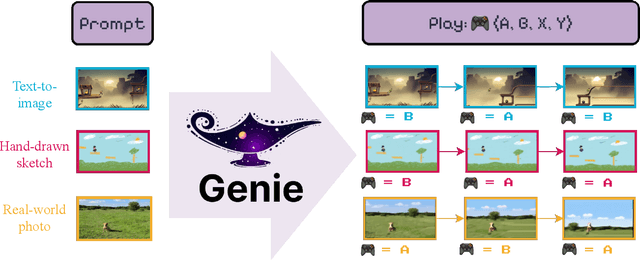

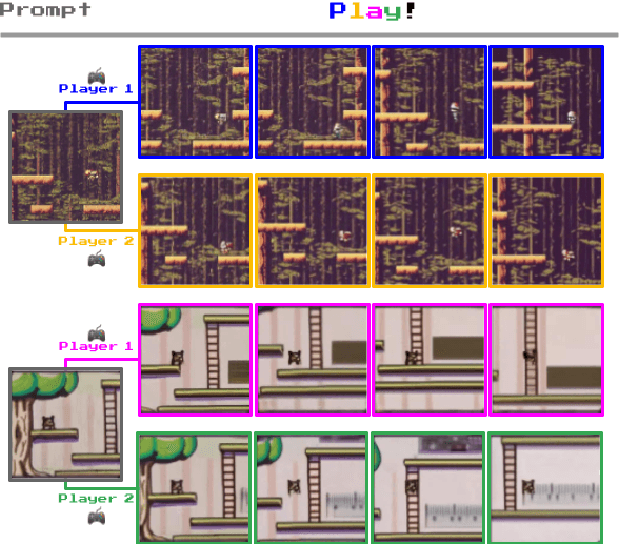

Abstract:We introduce Genie, the first generative interactive environment trained in an unsupervised manner from unlabelled Internet videos. The model can be prompted to generate an endless variety of action-controllable virtual worlds described through text, synthetic images, photographs, and even sketches. At 11B parameters, Genie can be considered a foundation world model. It is comprised of a spatiotemporal video tokenizer, an autoregressive dynamics model, and a simple and scalable latent action model. Genie enables users to act in the generated environments on a frame-by-frame basis despite training without any ground-truth action labels or other domain-specific requirements typically found in the world model literature. Further the resulting learned latent action space facilitates training agents to imitate behaviors from unseen videos, opening the path for training generalist agents of the future.
A Generalist Agent
May 19, 2022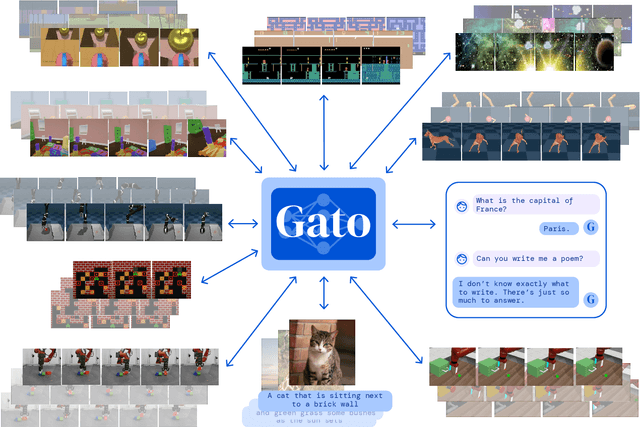
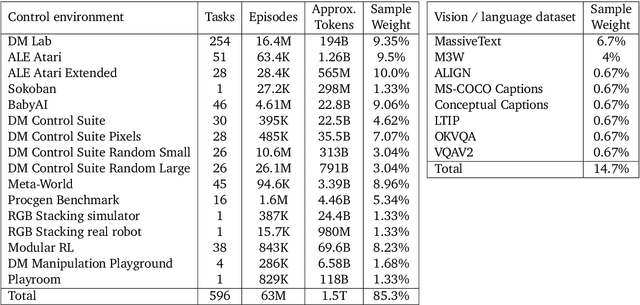
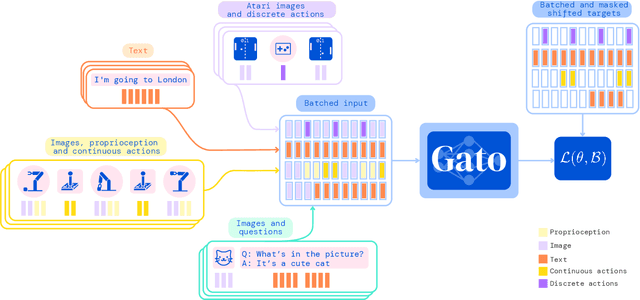

Abstract:Inspired by progress in large-scale language modeling, we apply a similar approach towards building a single generalist agent beyond the realm of text outputs. The agent, which we refer to as Gato, works as a multi-modal, multi-task, multi-embodiment generalist policy. The same network with the same weights can play Atari, caption images, chat, stack blocks with a real robot arm and much more, deciding based on its context whether to output text, joint torques, button presses, or other tokens. In this report we describe the model and the data, and document the current capabilities of Gato.
Learning Robust Real-Time Cultural Transmission without Human Data
Mar 01, 2022
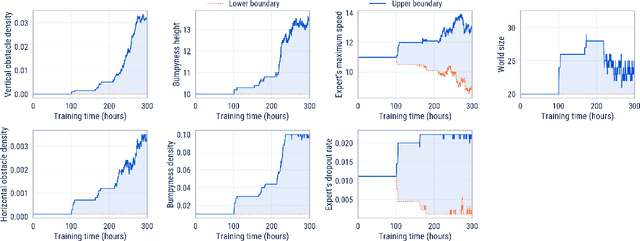


Abstract:Cultural transmission is the domain-general social skill that allows agents to acquire and use information from each other in real-time with high fidelity and recall. In humans, it is the inheritance process that powers cumulative cultural evolution, expanding our skills, tools and knowledge across generations. We provide a method for generating zero-shot, high recall cultural transmission in artificially intelligent agents. Our agents succeed at real-time cultural transmission from humans in novel contexts without using any pre-collected human data. We identify a surprisingly simple set of ingredients sufficient for generating cultural transmission and develop an evaluation methodology for rigorously assessing it. This paves the way for cultural evolution as an algorithm for developing artificial general intelligence.
Perceptual Reward Functions
Aug 12, 2016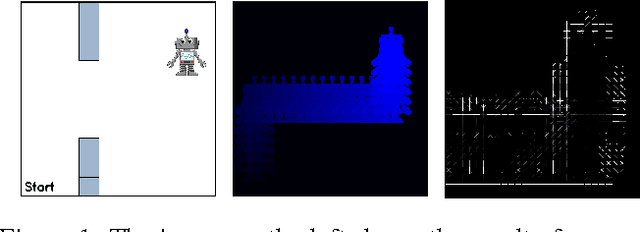
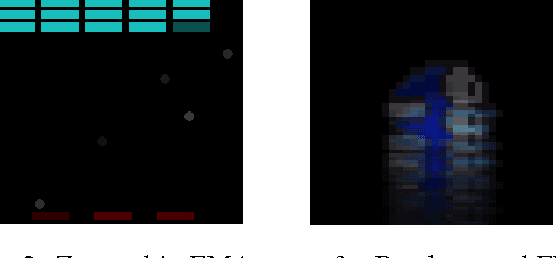


Abstract:Reinforcement learning problems are often described through rewards that indicate if an agent has completed some task. This specification can yield desirable behavior, however many problems are difficult to specify in this manner, as one often needs to know the proper configuration for the agent. When humans are learning to solve tasks, we often learn from visual instructions composed of images or videos. Such representations motivate our development of Perceptual Reward Functions, which provide a mechanism for creating visual task descriptions. We show that this approach allows an agent to learn from rewards that are based on raw pixels rather than internal parameters.
 Add to Chrome
Add to Chrome Add to Firefox
Add to Firefox Add to Edge
Add to Edge